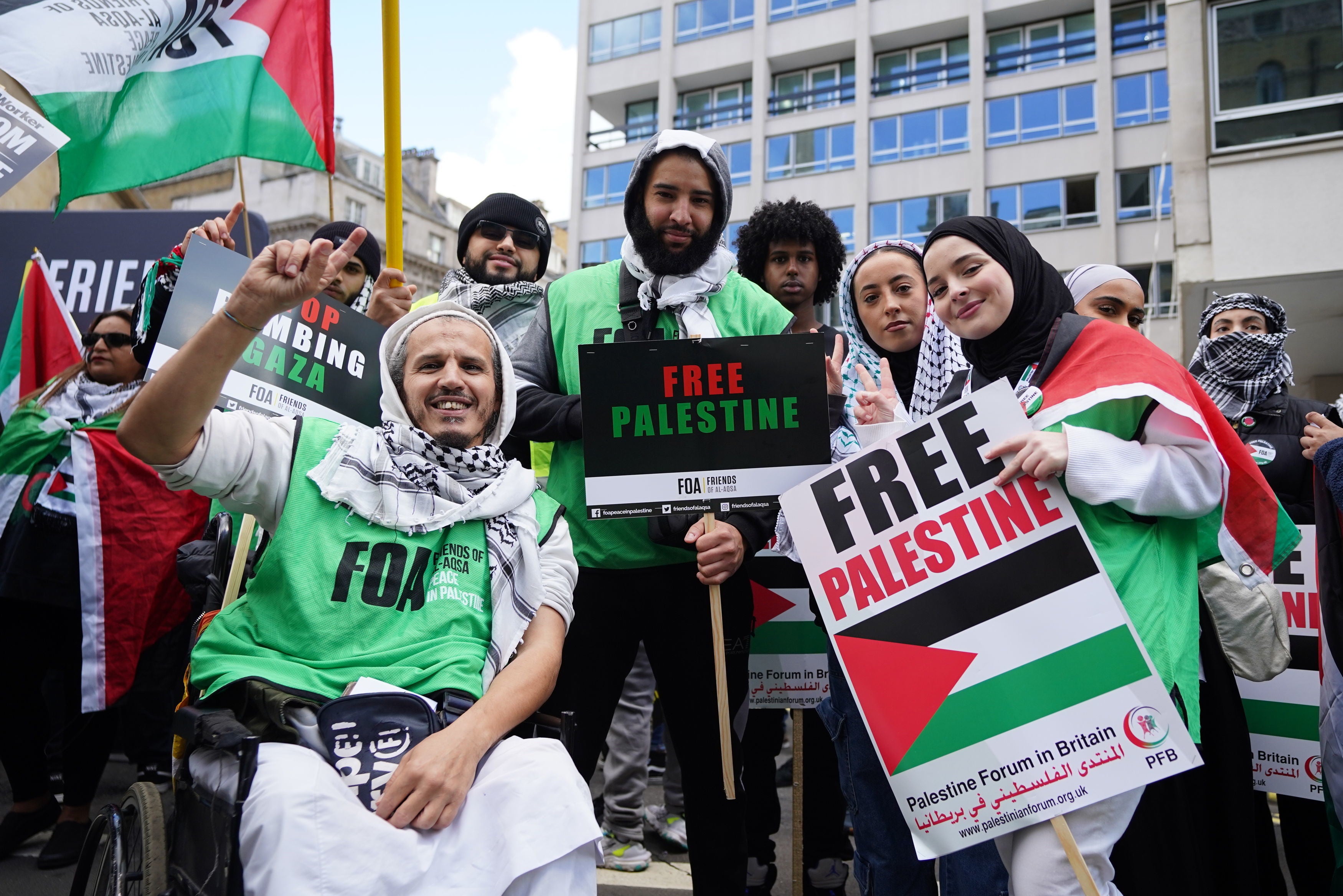How can police deal with ‘jihad’ protests over the Israel-Gaza war?
Suella Braverman says she ‘recognises the complexities of the law in policing aspects of these protests’, writes Tom Peck, but she has not given the police extra powers to make arrests


The Hamas terrorist attacks on Israel, and Israel’s retaliatory airstrikes on Gaza, have prompted waves of rallies and demonstrations all over the world. In London, there have been several pro-Palestinian rallies, at which police chiefs have had the unenviable task of ensuring that free speech did not tip over into hate speech and, if it did, potentially taking action and making arrests.
Metropolitan Police Commissioner Sir Mark Rowley met home secretary Suella Braverman on Monday to discuss the best way to police demonstrations at a time of acute sensitivity.
People have been shocked by footage of a Tube driver leading his passengers in a chant of “Free, Free Palestine!” on a train packed with marchers heading to a pro-Palestinian rally. There is also a video that appears to show a man calling for “jihad” at a pro-Palestine event. To ensure that mass rallies adhere to the rules about what is and isn’t acceptable to chant, and deciding what action should be taken if those rules are not adhered to, is incredibly difficult.
Do police want more power to deal with protests?
Sir Mark said there were incidents in London at the weekend that would have been “incredibly distressing for people to witness, not least to the UK’s Jewish community who deserve to feel safe at what must be an incredibly traumatic time”.
He said police had been “ruthless [in] tackling anybody who puts their foot over the legal line”, but added that the circumstances were extremely challenging. “Our job is to enforce to the line,” he said. “Parliament’s job is to draw that line – maybe some of the lines aren’t in the right place.”
It is extremely difficult for individual officers to make a judgement on whether the passionate chants in defence of the rights of Palestinians have strayed into threats against Israel, or against Jewish people.
Braverman said she “recognised the complexities of the law in policing aspects of these protests and prosecutor decisions”. But she has not given the police extra powers to make arrests.
At what point does free speech cross over into hate speech?
There is nothing wrong, or antisemitic, about the words “Free Palestine”. Most Israelis are committed to what is known as a “two-state solution”, in which the people of Gaza, most of whom are stateless refugees, are granted the same legal rights as most of the rest of the people in the world.
The Crown Prosecution Service has also concluded that no crime occurred in the video in which a man is seen clearly calling for “Jihad”.
The word “Jihad” is simply Arabic for “struggle”, but it is – not unreasonably – most closely associated with a call for violent insurrection, in this case against the Israeli people.
Two weeks after 1,400 people were violently murdered and hundreds more taken hostage, it is not surprising that Jewish people consider a call for “Jihad” to be an incitement to violence.
What is the prime minister’s view?
Last week, Rishi Sunak visited Israel. So did Joe Biden and German chancellor Olaf Scholz. Emmanuel Macron is expected to visit Israel this week. The purpose of those visits is to try to exert influence on Israel’s president, Benjamin Netanyahu, to pressure him into responding to the atrocities against his people in a proportionate way, and not through what will be seen as the indiscriminate killing of Palestinian people, thousands of whom have already been killed.
There has been a rise in incidents of antisemitism in the US, the UK and elsewhere in Europe. Jewish people feel under attack, their safety threatened.
Sunak knows that it will be much harder for Western leaders to put pressure on Israel to respond in a more measured way if the streets in their own countries are filled with people making threats of violence against Jews.






Join our commenting forum
Join thought-provoking conversations, follow other Independent readers and see their replies
Comments